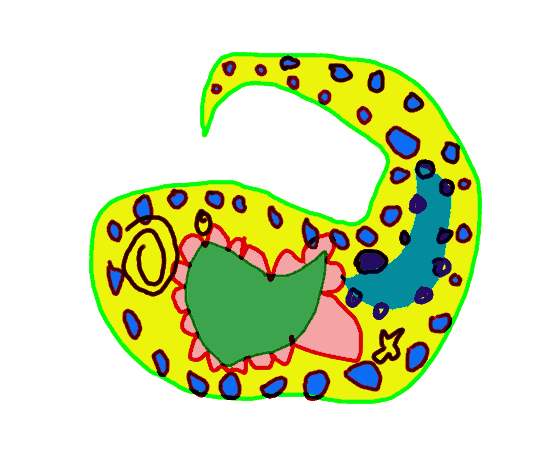|
|
|
|
|
culture shocked
Taxi trash talking
by katharine mieszkowski
RICHARD HART ALWAYS has the right comeback, even when a murder has just been committed. He calls his two-word retorts "nonescalating verbal self-defense."
Once a gunman and his accomplice took taxi no. 1010, the San Francisco Yellow Cab that Hart drives, to commit a murder. When the killer got out of the taxi and fired his gun, the sidekick – still back in the cab – asked Hart, "Did you hear that?"
Hart's response: "The backfire?"
After the gunman jumped back in the cab, the cool-headed taxi driver drove to the crowded intersection of California and Leavenworth and abandoned the vehicle in the middle of traffic: "I got out of the cab and took a walk," he explains. By the time he got back to the stalled vehicle, one criminal had fled on foot, and a crowd of potential witnesses – honking drivers and annoyed cable-car riders – had gathered, preventing the remaining felon from attacking Hart.
But the 54-year-old taxi driver with watery blue eyes and a Mickey Mouse watch didn't always have such verbal dexterity and street smarts. When he first started driving in San Francisco some 15 years ago, he was constantly bruised by the daily verbal assaults of rude passengers.
A typical brusque cab rider would demand, "Take me to the Fairmont! Do you know where that is?" Hart says. "And I would go speechless, because they would hurt my feelings."
A graduate of Dartmouth College, Hart was a systems programmer in the '60s: "We weren't just coders," he muses. "We invented things." He worked at places like IBM and Atari before layoffs and corporate malaise drove him to a new day job behind the wheel.
In his cab he evolved from browbeaten nerd to a silver-tongued field researcher in sociolinguistics. "I realized after a while that no matter what they said, there was some powerful way to alter the flow," he says.
Hart didn't just develop a thicker skin. He created a verbal arsenal of retorts to diffuse tensions both life threatening and trivial.
Hart fights back with one-liners. Well, really two-worders: simple, sometimes goofy rejoinders like "That's jolly" or "Too bad!" or "Where else?" that take the heat out of a conflict or deflect an impolite question without offense.
The cab is his laboratory for studying the spectrum of "things that can go wrong in conversation" – such as loftiness, nagging, harassment, and intimidation – and testing his responses: "They can't fire me because I'm a taxi driver," he says. "That's why I can do this research."
By now, Hart attests, he's invented and memorized a whimsical response to virtually every conceivable rude, bullying, aggressive, or intrusive statement that another human being can serve up, ranging from "Do you think I look fat?" to "I wasn't talking to you!" to "Move the fucking car!"
Hart has divided his comebacks into 88 categories depending on the offense. It's a brain-as-database approach to thinking on your feet. His method: listen for keywords in conversation so you'll always be able to have the perfect retort on the tip of your tongue. "The main thing that a street-smart person does is they don't daydream," he says. "They're putting their energy into listening."
Sometimes his quirky ripostes are momentarily confusing, but that's sort of the point. After all, it's hard to respond to a comeback that you don't understand right away. For example, when someone says, "Don't move or I'll cut your throat," Hart recommends this response: "I'm easy!" followed by "Oh good, we'll see it on the news." Don't sue me if this comeback results in laceration.
Today, if you're lucky enough to be a passenger in Hart's taxi, he'll offer you a business card with his Web site's address: www.taxi1010.com. He used to sell his responses in book form to his passengers for $22.50, and he sold 300 copies before deciding that the Web was a better way to bring his retorts to the world.
When I first got into Hart's cab, I asked what I thought was an innocuous question: "How business?" His response: "Who knows? What's your profession?" He later explained that asking "How's business?" is intrusive because it implies a sense of superiority. It's the kind of question that you'd ask someone in the service industry but not the president of the United States or the queen of England.
And it's such "posturing" that Hart is out to quash with his pithy, "frequently poetic" stock responses. He's out to deflate tough talkers and the self-important, as well as the everyday clueless who are just falling back on tired truisms like "What do you do?" Hart's little memorized scripts represent his idealized and exalted view of what human communication should and can be.
Ultimately it's not the murderer with the sawed-off shotgun who worries Hart. It's the everyday assassins of daily conversation. "There's ancient magic in a person that can get murdered by the mundane," he says. "The mundane is things like 'What did you do this weekend?' As if there weren't infinite moments in the weekend."
[Katharine Mieszkowski is a writer for Salon.com]
|
[top] |
